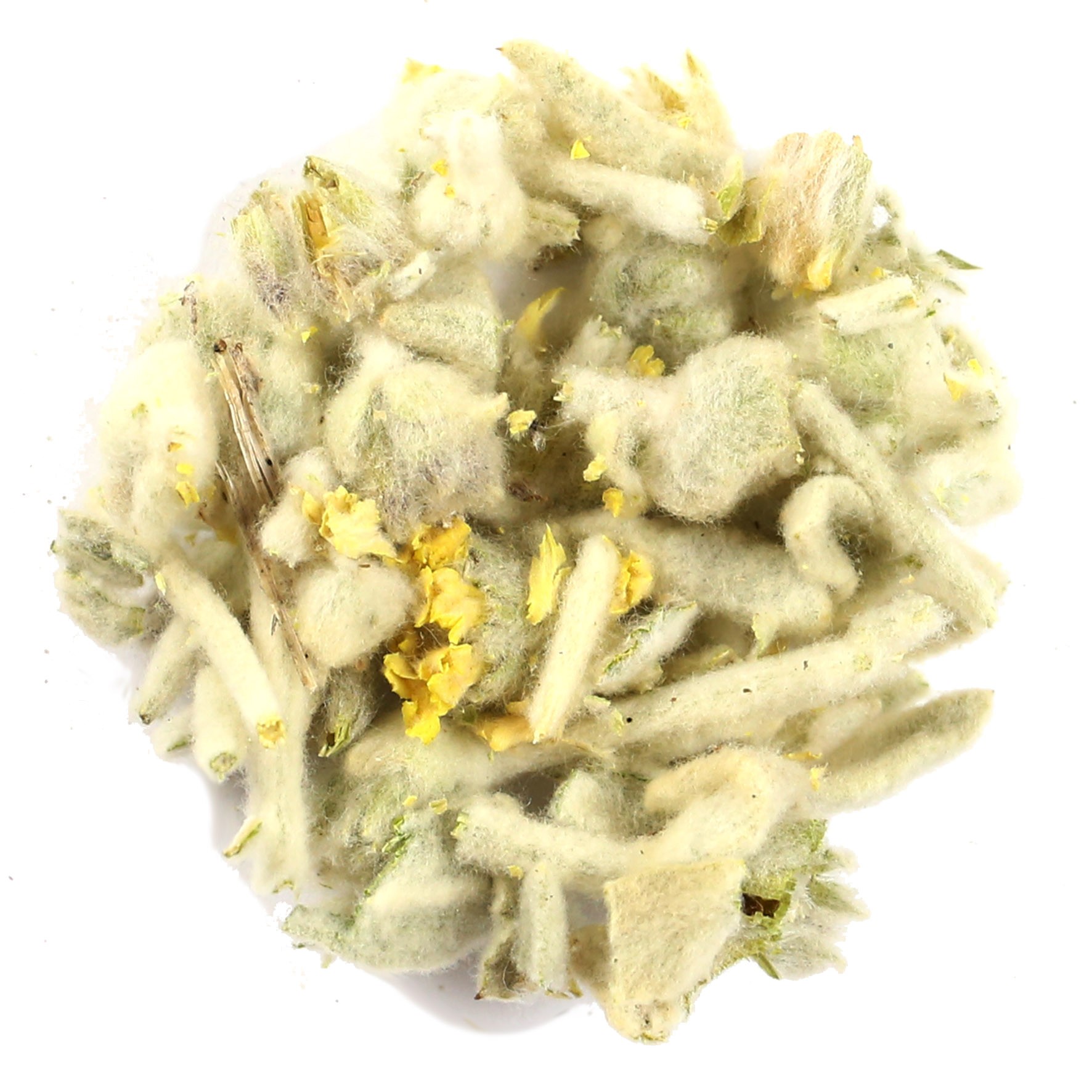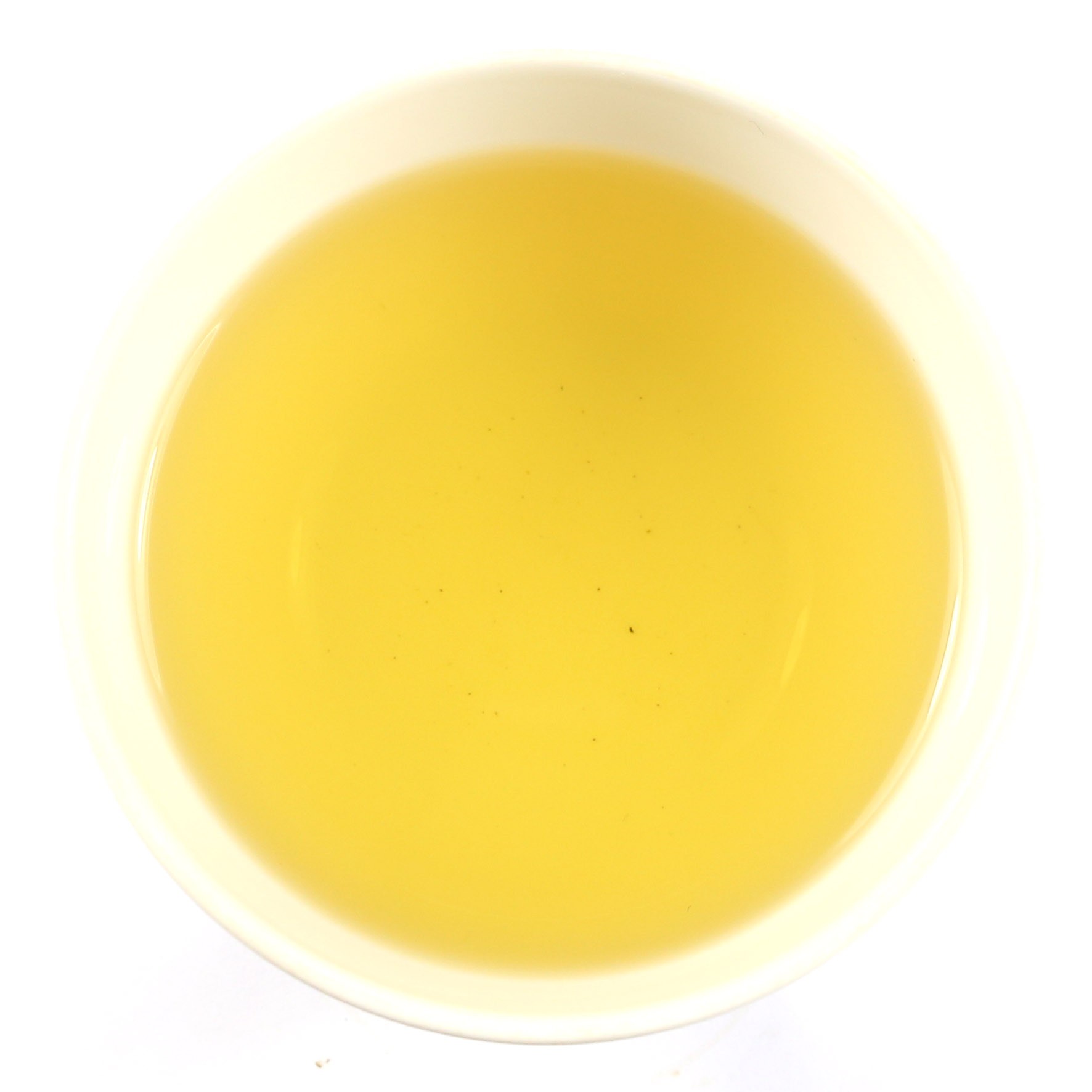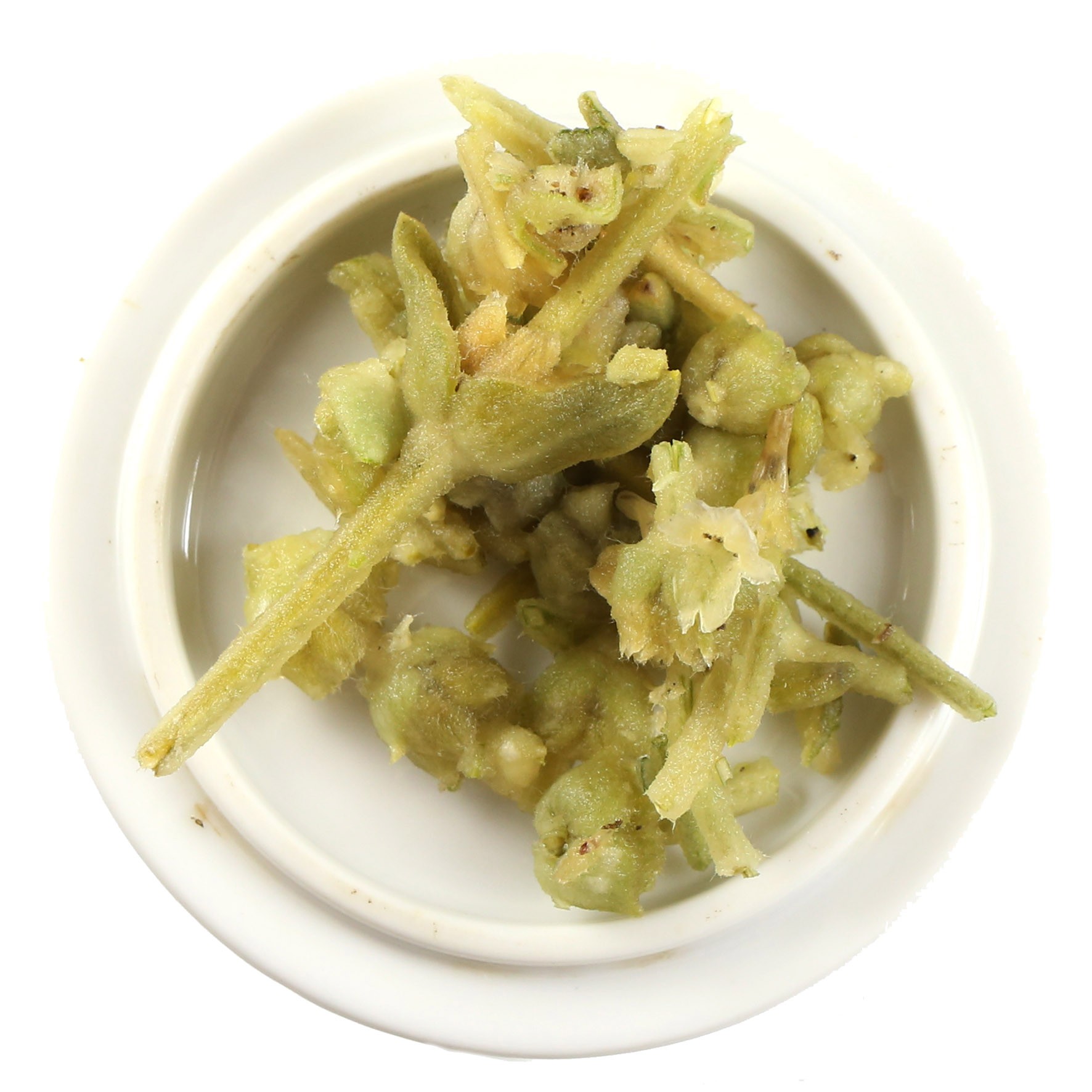Herbal Tea Brewing Guide

1 Teaspoon
Add 1 teaspoon per person and one for the pot.

95⁰c - 100⁰c
Boil using fresh water, at a temperature of 95⁰ - 100⁰c.

8 - 10 Mins
Steep for 8-10 minutes, depending on personal preference.
About Product
-
Product Description
Greek Mountain Tea is a beacon of tradition and nature’s gift to wellness. Locals call it “Tsai tou vounou”. This herbal tea is made from the dried flowers, leaves, and stems of the Sideritis plant. This plant thrives on the rugged slopes of Greece.
It’s not just a tea. It’s a cherished ritual in Greek households. They celebrate it for its gentle, soothing taste. It has a rich mix of antioxidants, anti-inflammatories, and antibacterial properties. It is also known as ironwort, has a long history in traditional medicine. It is trusted to ease many ailments. These range from the common cold to digestion troubles.
It has a unique earthy and floral flavor. It also has undertones of lemon and honey. Greek Mountain Herbal Tea stands out in the herb tea world. It offers not just health benefits, but a great sensory experience.
What is Greek Mountain Tea?
Derived from the Sideritis species. It commonly thrives in the high elevations of the countryside in Greece. It is mostly found in mountains, such as Mount Olympus and the Pindus range. It also grows on the islands of Crete and Rhodes. It thrives in the strong Mediterranean sun.
The plant loves the harsh, rocky conditions of Greek topography. Other plants might struggle to live there. This resilience leads to high antioxidant levels. They are found in the leaves and flowers of the plant.
The tea is traditionally harvested in the summer months, when the plant is in full bloom. Harvesters carefully select the top parts of the plant. They ensure only the best ingredients make it into every cup. Hands often do this painstaking task. They preserve a centuries-old tradition passed down through generations.
From a botanical standpoint, the Sideritis plant is fascinating. It has small, pale yellow flowers, silvery-green leaves, and a woody stem. It’s often found clinging to rocky crags and slopes, showing off its hardy nature. Despite the rugged conditions it grows in, Greek Mountain Tea has a delicate, floral taste.
History of Greek Mountain Tea
The origins of Greek Mountain Tea date back to ancient Greece. It was highly esteemed among the great philosophers and physicians of the era. They valued it for its health benefits. Legends tell of the deity Chiron the Centaur. He taught humans about the medicinal benefits of the Sideritis plant. Marking the inception of its use in traditional remedies.
Greek people have drunk this tea for centuries. It’s part of their daily life and culture. The tea is more than something to drink. It’s a symbol of Greek heritage and natural medicine.
Over the millennia, shepherds have relied on it in the hilly terrains of Greece. They found their flocks stayed healthy after grazing on the Sideritis plant. They saw this and began to harvest the plant to make tea. They noticed big improvements in their health and energy.
Today, Greek Mountain Tea is celebrated not only in Greece. It is also hailed as a super food across the globe. Studies have started to affirm what the Greeks have known for centuries. Tea has remarkable anti-microbial, anti-inflammatory, and anti-oxidant qualities.
Modern cultivation and harvesting practices have stayed much like traditional methods. They honour the legacy of Greek ancestors. Besides, advances in farm technology have ensured steady supply. It meets growing demand and has made food more accessible than ever before.
How to Make Greek Mountain Tea
Brewing Greek Mountain Tea is easy. But, it’s enriching too. It connects you with a centuries-old tradition. Follow these steps for the perfect cup:
- Measure Out the Tea: For each cup, you’ll need one teaspoon of dried Greek Mountain Tea. If you prefer a stronger brew, please adjust the quantity.
- Boil Water: Bring water to a boil in a kettle. Once boiling, allow it to cool for a moment, as boiling water can scald the delicate herbs and impair the flavour.
- Steep the Tea: Place the tea in a teapot or tea infuser over a cup, and pour the hot water over it. Allow the tea to steep for about 5 to 10 minutes. The longer you steep, the more full-bodied the flavour will be.
- Strain and Serve: If using a teapot, strain the tea into cups. If you’ve used a strainer over a cup, simply remove the strainer. It can be enjoyed plain, or with a dollop of honey and a squeeze of lemon to enhance its natural flavours.
Tasting Notes: With a smooth, earthy taste, with notes of floral sweetness and hints of citrus. Many describe the aftertaste as refreshingly mild and soothing.
Caffeine Content: It is naturally caffeine-free.
Tips for the Perfect Brew
- Storage: To keep tea aromatic, store it in a cool, dry place. Keep it away from direct sunlight. An airtight container is recommended to keep it fresh for longer.
- Iced Tea Option: For a refreshing alternative, it can be prepared as an iced beverage. Simply brew as described above, then chill in the refrigerator. Serve over ice, adding honey and lemon to taste.
- Enhancing Flavour: Try adding herbs like mint or a cinnamon stick, while steeping. They will add extra flavours to your tea.
- Water Quality Matters: Using spring or filtered water can enhance the tea’s natural purity.
It has a rich history and celebrated health benefits. It is a staple in Greek culture and cuisine. The tea has a delicate flavor. And, it’s easy to brew. That’s why it has gained popularity worldwide. So why not take a sip of this ancient elixir and experience the taste of Greece.
-
Delivery Information
We offer reliable delivery services through Royal Mail to ensure that your orders reach you on time.
Here are the main points you should be aware of:
- Standard UK Delivery: £3.95 excluding delivery charge.
- Delivery Times: Orders are processed and dispatched within 2-5 working days but they may take longer during busy times. It is worth noting that all our orders are packed by hand in order to maintain the quality.
- Free Delivery: We are delighted to provide free shipping for UK orders over £35*. Moreover, customers from Europe can enjoy free shipping for any purchase above €75*. Furthermore, we offer free delivery in the USA for all purchases exceeding $125*. Please note terms and conditions may apply.
- Tracking: When your package is sent you will receive a tracking number via email so as to keep tabs of its progress.
International Shipping
We do ship worldwide meaning our products can be accessed by anyone around the world.
Here are some important details:
- Delivery Times: International deliveries vary based on destination, generally taking between 7-14 working days.
- Shipping Costs: International shipping costs are calculated at checkout based on your location and weight of your order. View full delivery charges for your location.
- Customs and Import Duties: Remember customs or import duties may exist depending on regulations in your country; these charges are borne by the customer.
Returns Policy
Your satisfaction is our top priority, however if for any reasons you’re not completely happy with your purchase, simply follow our returns procedure:
- Eligibility: Items returned within 30 days of receipt must remain unopened and in their original condition.
- Process: In order to return an item contact our customer service department using your unique order number after which detailed instructions will be given concerning returning them back to us securely.
- Refunds: Our aim is to refund you within 5-7 working days upon successful reception of returned goods. The refund amount will be credited to your original payment method.
For any other Enquiries or help please contact our Customer Support Team always at your service.
-
Product Reviews

 Loose Leaf Tea
Loose Leaf Tea Pyramids
Pyramids Tea Bags
Tea Bags Africa
Africa Assam
Assam Ceylon
Ceylon Chinese
Chinese Darjeeling
Darjeeling European
European Indian
Indian Japan
Japan Nepal
Nepal South East Asia
South East Asia Ayurveda Tea
Ayurveda Tea Black Tea
Black Tea Chai Tea
Chai Tea Flowering Tea
Flowering Tea Fruit Tisanes
Fruit Tisanes Green Tea
Green Tea Herbal Tea
Herbal Tea Matcha Tea
Matcha Tea Oolong Tea
Oolong Tea Organic Tea
Organic Tea Pu erh Tea
Pu erh Tea Rooibos Tea
Rooibos Tea White Tea
White Tea Asian Coffee
Asian Coffee Caribbean Coffee
Caribbean Coffee Central American Coffee
Central American Coffee South American Coffee
South American Coffee Coffee Blends
Coffee Blends Decaffeinated Coffee
Decaffeinated Coffee Espresso Coffee
Espresso Coffee Ethically Sourced Coffee
Ethically Sourced Coffee Flavoured Coffee
Flavoured Coffee Organic Coffee
Organic Coffee Single Origin Coffee
Single Origin Coffee Chocolate 1
Chocolate 1 Chocolate 2
Chocolate 2 Chocolate 3
Chocolate 3 Chocolate 4
Chocolate 4 Chocolate 5
Chocolate 5 Chocolate 6
Chocolate 6 Chocolate 7
Chocolate 7 Chocolate 8
Chocolate 8 Chocolate 9
Chocolate 9 Loose Tea Filters
Loose Tea Filters Tea Accessories
Tea Accessories Tea Bricks
Tea Bricks Tea Caddies
Tea Caddies Tea Caddy Spoons
Tea Caddy Spoons Tea Gift Ideas
Tea Gift Ideas Tea Infusers
Tea Infusers Tea Strainers
Tea Strainers




